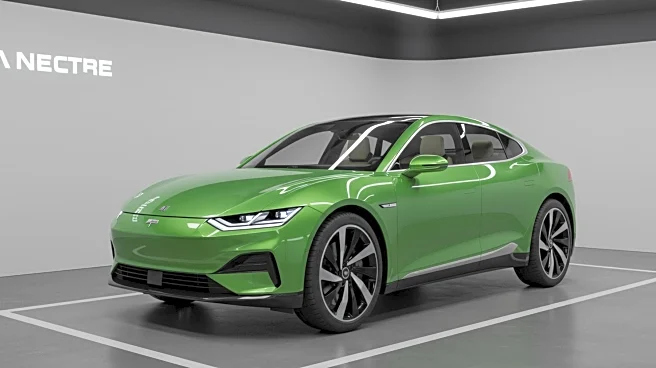What's Happening?
Volvo Cars has introduced the ES90, a fully-electric vehicle designed with sustainability as a core focus. The ES90 is produced using climate-neutral energy and features a low carbon footprint, with 31 tonnes when using a European energy mix and 26 tonnes with wind energy. The vehicle incorporates innovative features such as an 800-volt electric system and lighter components to enhance energy efficiency. The ES90 also utilizes recycled materials, including 29% recycled aluminum, 18% recycled steel, and 16% recycled polymers, setting a new standard in sustainable vehicle manufacturing.
Why It's Important?
Volvo's commitment to sustainability in vehicle production reflects a broader industry shift towards environmental responsibility. The ES90's reduced carbon footprint and use of recycled materials demonstrate the potential for automakers to minimize environmental impact while maintaining performance standards. This development could influence other manufacturers to adopt similar practices, potentially leading to more sustainable production methods across the industry. Consumers increasingly prioritize sustainability, and Volvo's approach may enhance its brand reputation and market competitiveness.
What's Next?
Production of the ES90 is scheduled to begin in late summer 2025, with deliveries expected in spring 2026. Volvo's proactive approach to sustainable manufacturing may prompt other automakers to accelerate their own sustainability initiatives. The industry could see increased collaboration on sustainable technologies and materials, as well as potential regulatory changes to support environmentally friendly practices. Volvo's success with the ES90 could lead to further innovations in sustainable vehicle design and production.









